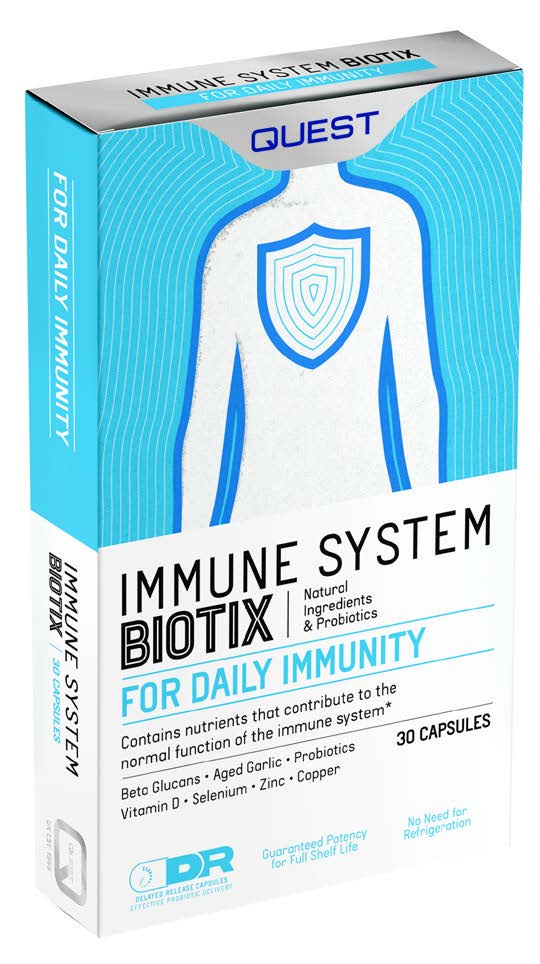Whether you travel for much of the year, work odd hours or have a busy social life, the lack of routine can make it more difficult to stay in good health. As well as day-to-day problems such as fatigue, research suggests that shift workers for example are at higher risk of conditions such as obesity, high blood pressure, heart disease and strokes.
There could be several reasons for this, including the disruption to the body’s circadian rhythm (the 24-hour cycle), as well as poor food choices and unhealthy habits – such as increased alcohol consumption – that may help workers cope with a disrupted daily rhythm.
So if you’re a shift worker, or have a busy, chaotic schedule what can you do to stay healthy? Here are some of our favourite food and lifestyle tips.
Eat regular meals
Working irregular hours can make it more difficult to eat normal meals at regular times. It can be tempting to just pick up a sandwich on the way to work, or eat breakfast cereal twice a day, or skip meals altogether and just grab snacks when you get hungry.
But these habits aren’t doing any favours for your long-term health. Lack of regular meals may ‘throw off’ your circadian rhythm even more. You can end up craving more snacks and sugary or carbohydrate-rich foods, because your blood sugar balance is off-kilter – which can then contribute to weight gain. And you can miss out on essential vitamins, minerals and antioxidants found in fresh, whole foods that support your energy levels, your heart, and your overall wellbeing. To stay on the safe side try Immune System Biotix, which contains nutrients to support immune function and increase resistance to disease and infections.
In general, make an effort to stick to normal meal times – even if your breakfast and dinner are reversed. Try to cook homemade meals with fresh ingredients, including plenty of vegetables. This can mean preparing meals in batches on your days off, so you have something healthy to come home to, and something easy to give your family. Some people find a slow cooker very helpful, as they can just throw all the ingredients in the pot before they go to work (or sleep) and have a healthy meal ready when it’s needed.
Eat a protein-rich breakfast
Eating more protein at the beginning of your day, whenever that may be, could help you feel more awake and alert. Remember you don’t need to go for typical breakfast foods; in fact, it can be more helpful to eat a healthy ‘dinner’ meal when you first get up than at any other time of the day, because this type of meal tends to be higher in protein and in other nutrients. For other easy breakfast options, eggs are fantastic – eat them boiled, poached or scrambled, with wholemeal toast and some cherry tomatoes or grilled mushrooms. Stay away from refined carbohydrates and sugars such as sugary breakfast cereals, pastries, or toast with jam, which can spell disaster for your energy levels.
Take healthy snacks to work
It can be tempting for shift workers to snack on sugary foods or ‘whatever they can get their hands on’ to keep their energy up. So it’s vital to pre-empt the snack cravings with some healthy options. See our ‘Health tips’ section below for some ideas for healthy snacks.
Emphasize heart-friendly foods
As shift work may pose a risk to heart health, aim to include plenty of heart-healthy foods. At the top of the list are vegetables and fruit. They provide potassium to keep your blood pressure in check, magnesium to support muscle function (the heart is your most important muscle!), and plenty of antioxidants, which have a protective effect on the heart and blood vessels. Getting your ‘five a day’ is vital – in fact, some experts say we should be getting seven servings a day (five veg and two fruit).
Also important are the omega-3 fats found in oily fish such as salmon, sardines, mackerel and trout. They support healthy heart function and help maintain a healthy blood pressure. Eat two to three servings a week of oily fish for the best protection. If you are a vegetarian or don’t regularly eat fish you could try Cod Liver Oil which contributes to the normal function of the heart as well as supports joint health, reduces pain, stiffness and improves mobility.
Also beneficial are nuts and seeds, which provide a range of essential minerals and can help to maintain healthy cholesterol levels; as well as olive oil.
Optimize your sleep
If you have to sleep during daylight hours, then you need to do everything you can to maximise the quality of that sleep.
Darkness is essential – so investing in a blackout blind for your bedroom can be worth every penny. Earplugs can be useful too, especially if other members of your household are at home when you’re trying to sleep.
Make sure that your habits aren’t affecting your sleep. Coffee, tea and other sources of caffeine can be tempting when you need to stay awake, but overdoing them can lead to a vicious cycle where you can’t sleep when you do go to bed, then need to consume even more of them to stay awake the next day. And although eating regular meals is important, eating a huge meal just before bed will only disrupt your sleep – if you can, eat more lightly before bed and eat a larger meal when you wake up.
Manage your stress
Stress is directly linked to risk of heart disease and stroke. It can also encourage you to do other things that are bad for your heart – such as smoking and drinking more alcohol, as above. Stress also contributes to sleeping problems, of course.
Try Once A Day Immune C, which contributes to the protection of cells from oxidative stress and to the normal functioning of the immune system. Vitamin C supplies in the body are used up quicker under stress leading to a lowering of immune function and increased chances of infections.
Get some bright light early in your ‘day’
Exposure to bright light triggers production of serotonin – the ‘happy hormone’ – and helps to reduce levels of melatonin – the ‘sleep hormone.’ If you’re starting your day before the sun goes down, or trying to readjust to normal daytimes, try to get out for a 20-minute walk soon after you wake to get as much daylight as you can. If it’s already dark when you’re starting your day, then try Forte D 4000 to make sure you support the body’s normal function of the immune system and muscles.[:eu]Whether you travel for much of the year, work odd hours or have a busy social life, the lack of routine can make it more difficult to stay in good health. As well as day-to-day problems such as fatigue, research suggests that shift workers for example are at higher risk of conditions such as obesity, high blood pressure, heart disease and strokes.
There could be several reasons for this, including the disruption to the body’s circadian rhythm (the 24-hour cycle), as well as poor food choices and unhealthy habits – such as increased alcohol consumption – that may help workers cope with a disrupted daily rhythm.
So if you’re a shift worker, or have a busy, chaotic schedule what can you do to stay healthy? Here are some of our favourite food and lifestyle tips.
Eat regular meals
Working irregular hours can make it more difficult to eat normal meals at regular times. It can be tempting to just pick up a sandwich on the way to work, or eat breakfast cereal twice a day, or skip meals altogether and just grab snacks when you get hungry.
But these habits aren’t doing any favours for your long-term health. Lack of regular meals may ‘throw off’ your circadian rhythm even more. You can end up craving more snacks and sugary or carbohydrate-rich foods, because your blood sugar balance is off-kilter – which can then contribute to weight gain. And you can miss out on essential vitamins, minerals and antioxidants found in fresh, whole foods that support your energy levels, your heart, and your overall wellbeing. To stay on the safe side try Immune System Biotix, which contains nutrients to support immune function and increase resistance to disease and infections.
In general, make an effort to stick to normal meal times – even if your breakfast and dinner are reversed. Try to cook homemade meals with fresh ingredients, including plenty of vegetables. This can mean preparing meals in batches on your days off, so you have something healthy to come home to, and something easy to give your family. Some people find a slow cooker very helpful, as they can just throw all the ingredients in the pot before they go to work (or sleep) and have a healthy meal ready when it’s needed.
Eat a protein-rich breakfast
Eating more protein at the beginning of your day, whenever that may be, could help you feel more awake and alert. Remember you don’t need to go for typical breakfast foods; in fact, it can be more helpful to eat a healthy ‘dinner’ meal when you first get up than at any other time of the day, because this type of meal tends to be higher in protein and in other nutrients. For other easy breakfast options, eggs are fantastic – eat them boiled, poached or scrambled, with wholemeal toast and some cherry tomatoes or grilled mushrooms. Stay away from refined carbohydrates and sugars such as sugary breakfast cereals, pastries, or toast with jam, which can spell disaster for your energy levels.
Take healthy snacks to work
It can be tempting for shift workers to snack on sugary foods or ‘whatever they can get their hands on’ to keep their energy up. So it’s vital to pre-empt the snack cravings with some healthy options. See our ‘Health tips’ section below for some ideas for healthy snacks.
Emphasize heart-friendly foods
As shift work may pose a risk to heart health, aim to include plenty of heart-healthy foods. At the top of the list are vegetables and fruit. They provide potassium to keep your blood pressure in check, magnesium to support muscle function (the heart is your most important muscle!), and plenty of antioxidants, which have a protective effect on the heart and blood vessels. Getting your ‘five a day’ is vital – in fact, some experts say we should be getting seven servings a day (five veg and two fruit).
Also important are the omega-3 fats found in oily fish such as salmon, sardines, mackerel and trout. They support healthy heart function and help maintain a healthy blood pressure. Eat two to three servings a week of oily fish for the best protection. If you are a vegetarian or don’t regularly eat fish you could try Cod Liver Oil which contributes to the normal function of the heart as well as supports joint health, reduces pain, stiffness and improves mobility.
Also beneficial are nuts and seeds, which provide a range of essential minerals and can help to maintain healthy cholesterol levels; as well as olive oil.
Optimize your sleep
If you have to sleep during daylight hours, then you need to do everything you can to maximise the quality of that sleep.
>Darkness is essential – so investing in a blackout blind for your bedroom can be worth every penny. Earplugs can be useful too, especially if other members of your household are at home when you’re trying to sleep.
Make sure that your habits aren’t affecting your sleep. Coffee, tea and other sources of caffeine can be tempting when you need to stay awake, but overdoing them can lead to a vicious cycle where you can’t sleep when you do go to bed, then need to consume even more of them to stay awake the next day. And although eating regular meals is important, eating a huge meal just before bed will only disrupt your sleep – if you can, eat more lightly before bed and eat a larger meal when you wake up.
Manage your stress
Stress is directly linked to risk of heart disease and stroke. It can also encourage you to do other things that are bad for your heart – such as smoking and drinking more alcohol, as above. Stress also contributes to sleeping problems, of course.
Try Once A Day Immune C, which contributes to the protection of cells from oxidative stress and to the normal functioning of the immune system. Vitamin C supplies in the body are used up quicker under stress leading to a lowering of immune function and increased chances of infections.
Get some bright light early in your ‘day’
Exposure to bright light triggers production of serotonin – the ‘happy hormone’ – and helps to reduce levels of melatonin – the ‘sleep hormone.’ If you’re starting your day before the sun goes down, or trying to readjust to normal daytimes, try to get out for a 20-minute walk soon after you wake to get as much daylight as you can. If it’s already dark when you’re starting your day, then try Forte D 4000 to make sure you support the body’s normal function of the immune system and muscles.
_____________________________
Health tips section – healthy snacks
Here are some ideas for healthy snacks for work – or for any time. All of these provide slow-releasing energy, as well as valuable vitamins and minerals.
If you can, keep some of these at work for when the hunger monster strikes! Oatcakes or crackers, nuts and seeds, nut butters (e.g. almond butter) and fruit can be particularly good options to keep at work, as they don’t require a fridge.
- A single-serving pot of natural (unsweetened) yogurt with a handful of blueberries or raspberries, or a tablespoon of chopped nuts.
- Half an avocado sliced onto two or three oatcakes or crackers.
- A wedge of leftover homemade omelette or frittata.
- A small pot/handful of olives.
- A couple of tablespoons of cottage cheese, hummus or guacamole on two or three oatcakes or crackers.
- One hard-boiled egg, halved and sprinkled with sea salt and pepper. Add to a couple of oatcakes or crackers if you need a more substantial snack.
- Carrot sticks with a quarter-pot of hummus.
- Half an apple, sliced, with a couple of teaspoons of almond butter smeared onto the slices.
- A small banana with a tablespoon of walnuts.
- A couple of squares of dark chocolate (ideally 85%+ cocoa, and at least 70%) with a few walnut halves.
- Coconut chips (you can find these in health food stores and some supermarkets).





